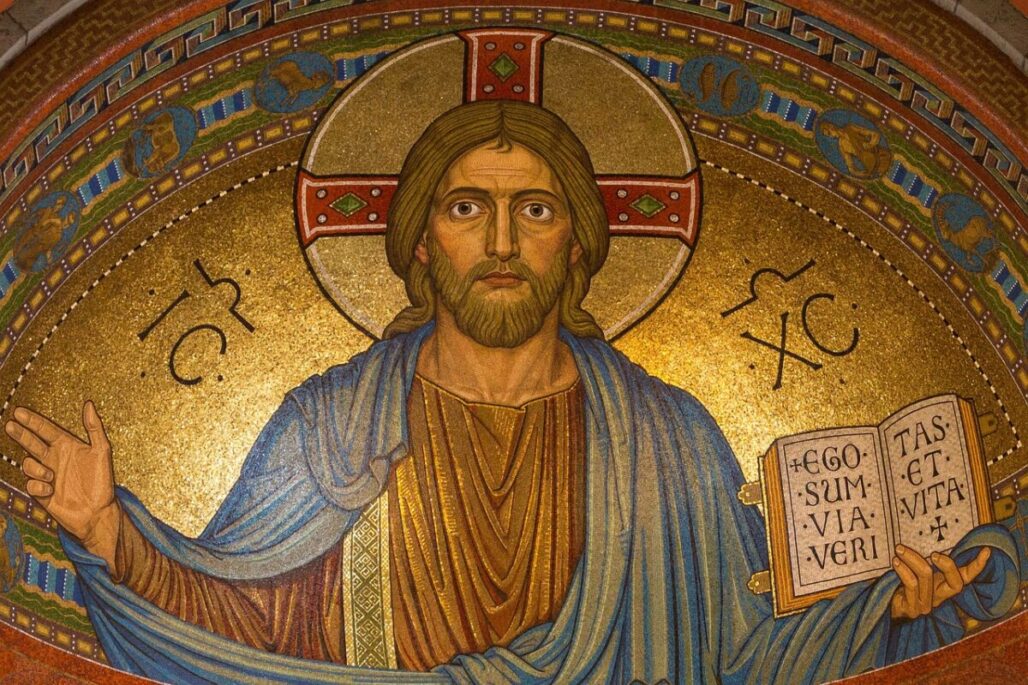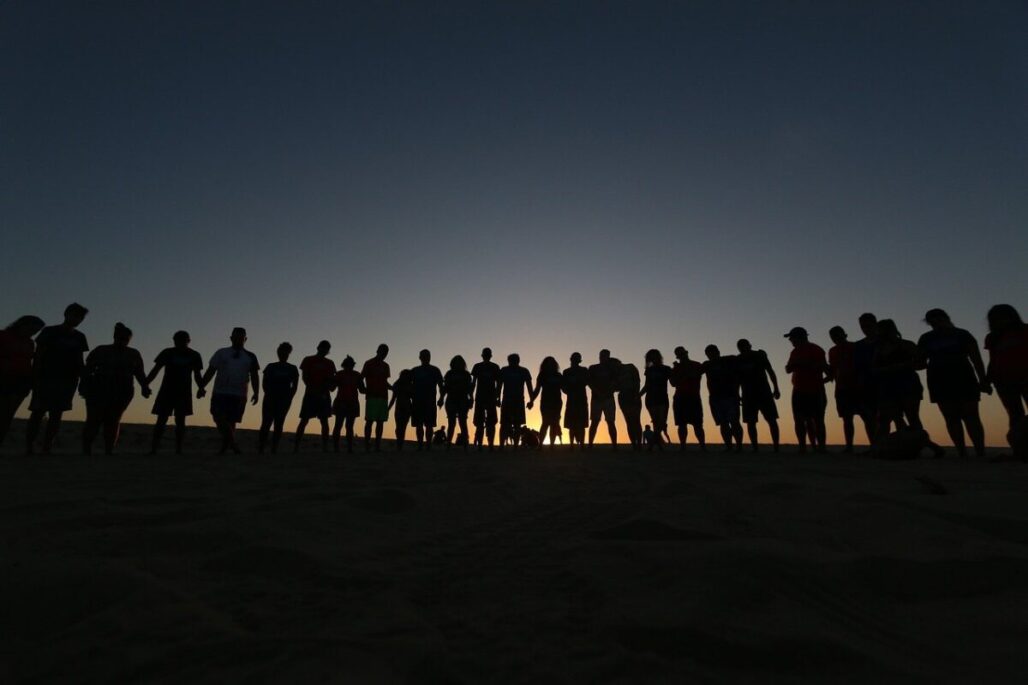We all know how many times Moses and Aaron said to Pharaoh, “Let my people go, says the God of the Jews.” We often have such an idea that it is enough to say to Pharaoh once: “Let My people go!”, And if it is said with authority and with faith, then Pharaoh has nowhere to go – he will immediately let the people go. But this does not fit the biblical story. The ancient Hebrew sages calculated that the punishments and this peculiar dialogue between Moses and the Pharaoh continued throughout the year.
In the beginning, when they came to Pharaoh for the first time, they said, “Let my people go, that they may celebrate a feast for me in the wilderness.” And Pharaoh answered: “Who is the Lord that I should listen to His voice and let [the sons] of Israel go? I do not know the Lord, and I will not let Israel go” (Exodus 5:2). In essence, everyone who does not let go of God’s people is saying that they do not know the Lord.
Interestingly, they did not leave immediately, but said: “The God of the Jews has called us; let us go into the wilderness for a three-day journey to offer sacrifice to the Lord our God, lest He smite us with a plague or with a sword.” And it was not they who invented the holiday first, and then the sacrifice. It was the Lord who gave them such formulations. The pharaoh generally reacted cheerfully to the holiday: “Slaves want a holiday in the desert? They’ve gone crazy. Slaves don’t have to celebrate. Slaves have to work. Arbeiten, arbeiten… And if you want freedom, the slogan over Auschwitz says: Arbeit macht frei (Work makes you free).”
Then God reformulated: “The God of the Jews has called us; let us go into the wilderness for a three-day journey to offer sacrifice to the Lord.” But this did not take the pharaoh. This is the second formulation and each is from the Lord. “Distract the people from their deeds. The people have things to do—they should serve me, not God. They should be my sacrifice and not engage in some kind of sacrifice to the unknown God of Israel. And Pharaoh said: “You are idle boys, you are idle. Either you want to celebrate, or you want to make some kind of sacrifice.”
Further, when Moses and Aaron came to God, they usually said: “The God of the Jews says to you: let My people go, that they may serve Me.” All subsequent times the wording has not changed. There was no “holiday”, not even a “sacrifice”, but only one thing: “Let the people go, let the Jews go so that they serve Me.”
For a whole year they, to put it mildly, persuaded the pharaoh and God punished the pharaoh. They talked, and God performed judgments and executions. They repeated the same thing and God confirmed the admonition of the pharaoh, his servants and other Egyptians with various executions. Such is the pedagogy.
When we are dealing with the rulers of the darkness of this age – not just demons controlling the life of some person, not just some spirits that influence a small group of people – but when we are dealing with fallen angels who influence to entire nations, we need not be discouraged if we do not have a quick answer. Spiritual warfare takes time. And the intensity of this spiritual warfare usually escalates along the way.
We also need to understand that we are fighting spiritual pharaohs. Why not with the pharaoh, but with the pharaohs? Because we are acting not only against the pharaoh who controls Russia from top to bottom. But our task is more complex. We cannot truly force that pharaoh to let go of our people before we force that pharaoh, who, unfortunately, continues to hang over Ukraine from within, to let go of our people. The big problem of war is that everyone unites against an external enemy – physical and spiritual. And we are missing a key enemy.
I prayed before the communion at the retreat that the Lord would give me a Scripture. And He gave me Ezekiel 8. It describes a vision that God gave to the prophet about the terrible idolatry that was committed in Israel at all levels, among different segments of the population, including the elders of the people. This chapter ends with these words:
“Have you seen this, son of man?” he asked. “Is it nothing to the people of Judah that they commit these detestable sins, leading the whole nation into violence, thumbing their noses at me, and provoking my anger? Therefore, I will respond in fury. I will neither pity nor spare them.” (Ezekiel 8:17-18).
I thought, “Wow, what a chapter the Lord showed me…”
By the grace of the Lord, Ukraine is not in the same position now as Israel was then. There is God’s remnant in Ukraine — God’s communities and churches that do not distribute their worship, faith, prayers between the Lord and idols. But we know very well that idolatry in Ukraine has flourished and is flourishing. Just like in Israel then. Only then was all of Israel practically involved in it, with the exception of just a few people whom the Lord set apart for Himself and who were either in exile, like Ezekiel, or in a pit, like Jeremiah.
Therefore, we need to fight not only against those pharaos who leads Babylon, who invaded the land of Ukraine, we need to fight against the pharaoh who, with his demonic army, rules over a large part of the people of Ukraine. And our battle can be truly successful only when we fight persistently with our native Ukrainian pharaoh. We also have “sub-pharaohs” – there is a Jewish “sub-pharaoh”, and there is such a specific religious “sub-pharaoh” who is engaged in supporting internal religious idols in the Body of the Messiah in Ukraine.
I understand that this word is not a great encouragement. But the Lord encourages us. And in order for us to be able to defeat our Ukrainian sub-pharaoh, we, first of all, need to deal with those idols of various kinds that he planted in our own lives. These idols will not be able to stand if we put it in our hearts that this is our common spiritual war and the Lord has already completed it victoriously. And only for this reason we can ascend in it and be freed from all the idols and demons that stand behind them.
Boris Grisenko, rabbi of KEMO. A word from the spring retreat KEMO 2022.
Source: https://ieshua.org/boris-grisenko-chto-nuzhno-pomnit-v-duhovnoj-borbe-s-vneshnim-vragom.htm










